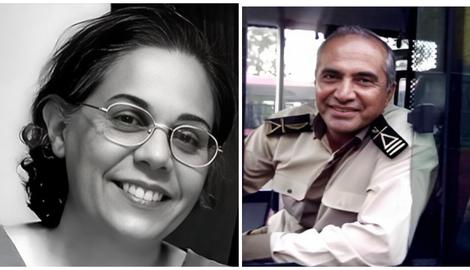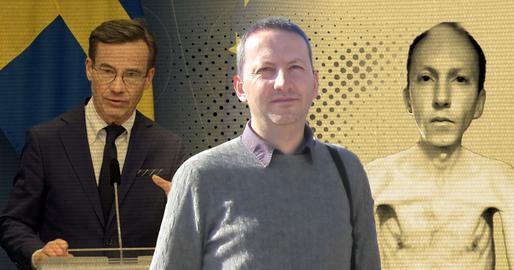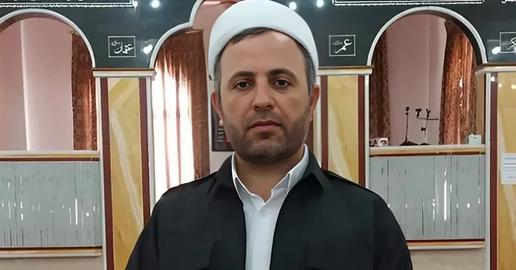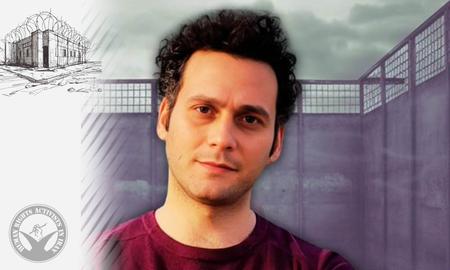Iman Valdbeigi is among the thousands of victims of the Islamic Republic’s brutal crackdown on nationwide protests that swept Iran last year.
Valdbeigi is a 42-year-old mechanical engineer from Tehran who has been missing for nearly eight months.
According to his father, Mojtaba, his son participated peacefully in anti-government protests in Tehran.
The man disappeared on November 30, and his father sought information about his whereabouts from various authorities such as the Evin Prosecutor's Office, all prisons in Tehran, the Intelligence Department, the Emergency Center and the Islamic Revolutionary Guard Corps’ (IRGC) Information and Intelligence Department.
But after 229 days of intense search, he found no trace of his son.
The family believes that Valdbeigi might be held in a secret detention center.
Valdbeigi’s disappearance coincided with the Iranian national football team's loss against the United States at the World Cup in Qatar, when people celebrated in the streets of Tehran and other cities.
On that day, two other men named Farzin Marofi and Ehsan Ghasemifar were shot and killed by the security forces.
Iman was born in the central city of Isfahan and studied mechanical engineering before getting married. He had been living with his family in Tehran since separating from his wife a few years ago.
The man worked at the engineering company Aria Hengard in Tehran.
He was interested in political issues but was not very active on social media.
Valdbeigi’s father said that the last time he was seen by the family was when he left home at 8 a.m. to go to his workplace.
There are speculations he might have participated in the protests held in front of the parliament on the day he went missing.
He would not be the only protester to have been forcibly disappeared by the authorities. Other men such as Reza Abbasi, a 21-year-old resident of Robat Karim in Tehran region, also disappeared during rallies.
There have also been reports of protesters being forcibly disappeared in the south-western province of Khuzestan.
Enforced disappearance is a crime under international law that occurs when someone has been arrested, detained or abducted by state agents, or people acting with their authorization, support or acquiescence. The authorities refuse to acknowledge this or conceal the person’s fate or whereabouts, placing them outside the protection of the law.
Unofficial places of secret detention in Iran fall outside the protection of the law and facilitate human rights violations including torture. They are unlawfully used by intelligence and security bodies, most often by the Ministry of Intelligence or the intelligence unit of the IRGC, to keep individuals in custody.
Leili Pourzand, a human rights activist and women's rights expert, tells IranWire: "The families of the kidnapped individuals experience immense mental anguish because they are uncertain whether their loved ones are alive or dead."
Pourzand highlighted that the lives of those forcibly disappeared are entirely in the hands of their jailers, who know no boundaries in inflicting torture and other cruel, inhuman or degrading treatment to detainees.
"Kidnapping or enforced disappearance is considered one of the most severe forms of systematic violence, and it may qualify as violence against humanity under international law," she said.
According to Pourzand, the relatives of those forcibly disappeared choose to remain silent out of fear of suffering a similar fate: "The most effective way to combat this crime is to expose and publicize the cases. However, the families of the abducted individuals are often subjected to intense fear, intimidation, desperation and psychological isolation, making it challenging for them to take such actions."
"The repressive apparatus aims to exert severe pressure and isolate activists and their families, to create panic and uncertainty, and ultimately to manipulate information in the absence of support from the media and human rights [groups]," she added.
























comments